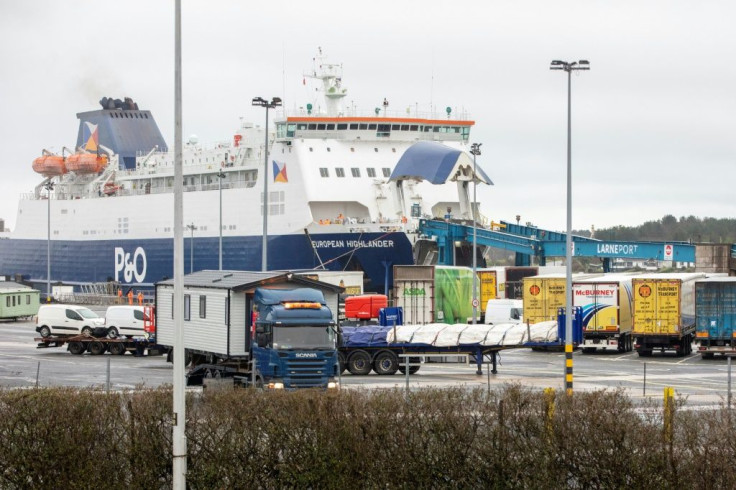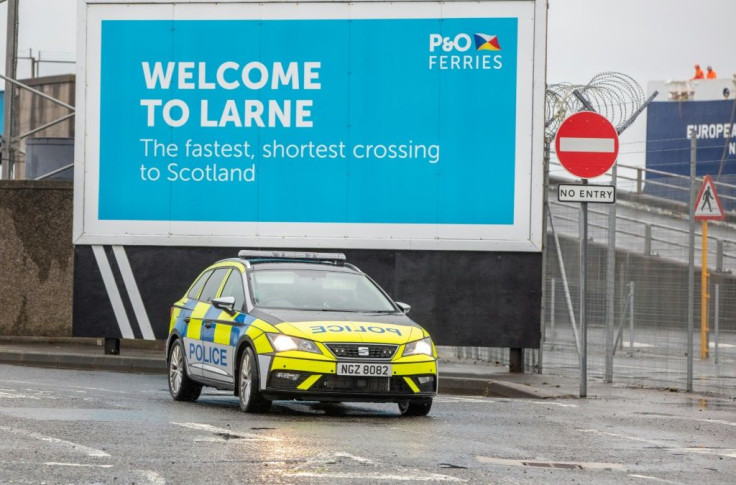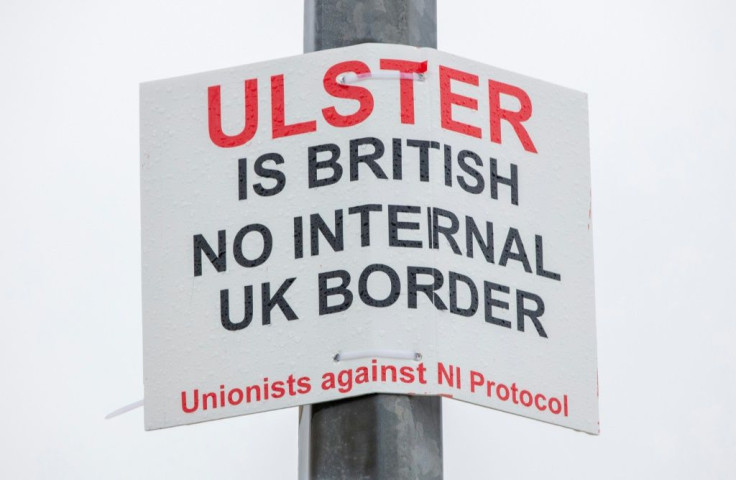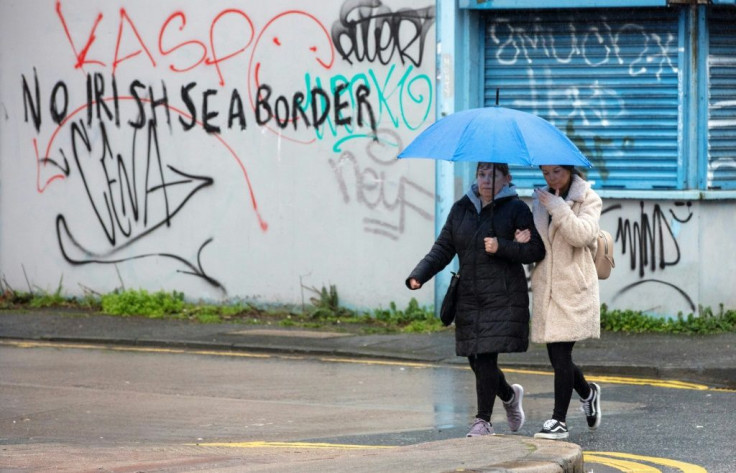Writing On The Wall: Signs Of Unrest Over N.Ireland Brexit Checks
In the Northern Irish port of Larne sinister graffiti labelling border staff "targets" has been power-washed from the walls - but deep unionist resentment over post-Brexit checks in the British province remains.
"More and more people will become outraged, and I can see this being a growing problem," said Roy Beggs, a member of Northern Irish parliament for the Ulster Unionist Party.
"It's just not going to be accepted," he told AFP.
This week the EU and regional agriculture ministry pulled staff from the ports of Belfast and Larne after graffiti appeared at the entrance to the latter with a threat: "All border post staff are targets".

That paused new checks on goods arriving in the province from mainland Britain under the "Northern Ireland Protocol", special post-Brexit arrangements which came into effect on January 1.
After Britain's seismic 2016 referendum to leave the EU, negotiations stalled on the issue of Northern Ireland, a British province that is home to 1.9 million.
The province was the site of The Troubles, a 30-year sectarian conflict between unionists favouring ties to Britain and republicans seeking to join the Republic of Ireland.
Some 3,500 were killed until a 1998 deal brokered a fragile peace.
The 310-mile (500-kilometre) boundary between Northern Ireland and the Republic witnessed some of the bloodiest chapters of the conflict, and border controls were dissolved as peace prevailed.

There were fears that post-Brexit there would be posts along that new frontier between the UK and EU, turning back the clock and causing dissident republicans to mount fresh attacks and recruitment campaigns.
Instead the checks were shifted to ports and airports -- effectively keeping Northern Ireland in the EU single market and customs union, while creating a "sea border" between the province and Britain.
"Down the Irish Sea, people who are ordinarily passing back and forth shouldn't see any difference because it's only a trade border," said Peter Sheridan, a former police assistant chief constable.

Sheridan, who oversaw the Irish border during The Troubles, said port checks were a "pragmatic decision" that resulted in "a much easier to control border".
Thus far the protocol has principally affected business in Northern Ireland, with supermarkets experiencing modest shortages, some delays on goods, and changes in online shopping.
But in unionist enclaves there are signs of deeper emotional unrest over its implications.
"No hard Irish sea border", says spray-painted graffiti in the town of Carrickfergus, six miles (10 kilometres) south of Larne.
"Loyalist Carrick says no to sea border", reads another slogan on a busy road.

In the capital Belfast, graffiti appeared underneath a billboard urging people to prepare their businesses for Brexit.
"No Irish sea border", it declared.
Beggs said he condemns the threats and intimidation of port staff.
But he understands the visceral change some unionists believe has taken place since January 1.
"They have actually enforced a border on the Irish Sea, changing my constitutional position within the United Kingdom," he said.
During long-fraught Brexit negotiations the EU insisted the protocol was a bedrock necessity to avoid a "hard border" on the island of Ireland.
But over the weekend it became the subject of fresh ire in the unionist community after a coronavirus vaccine row pushed the EU to warn it would invoke "Article 16" of the treaty, allowing aspects to be unilaterally changed.
The move, intended to stop vaccines flowing out of the EU over the Irish border, was widely considered a diplomatic botch and Brussels quickly backtracked.
But among unionists it has undermined the argument that the protocol is essential and unalterable.
"I have a feeling that the EU played Northern Ireland," said Beggs.
When the "European Highlander" ferry from Scotland docked in Larne on Wednesday, Northern Ireland police vehicles patrolled the area as lorries were waved past inactive checkpoints.
Assistant Chief Constable Mark McEwan said he was "concerned about signs of tension within the community in recent weeks" -- signalled by graffiti and social media intimidation.
But he said there was no evidence of "paramilitary involvement" by groups of hardcore unionists, some of whom have also remained active since the 1998 peace deal.
However Beggs remains wary that "growing" unrest over the protocol could fan the embers of a smouldering conflict that has divided Northern Ireland for decades.
"We do not want any extremists to gather a foothold," he said.
"But there is a real danger that that is what will happen."
© Copyright AFP 2024. All rights reserved.





















